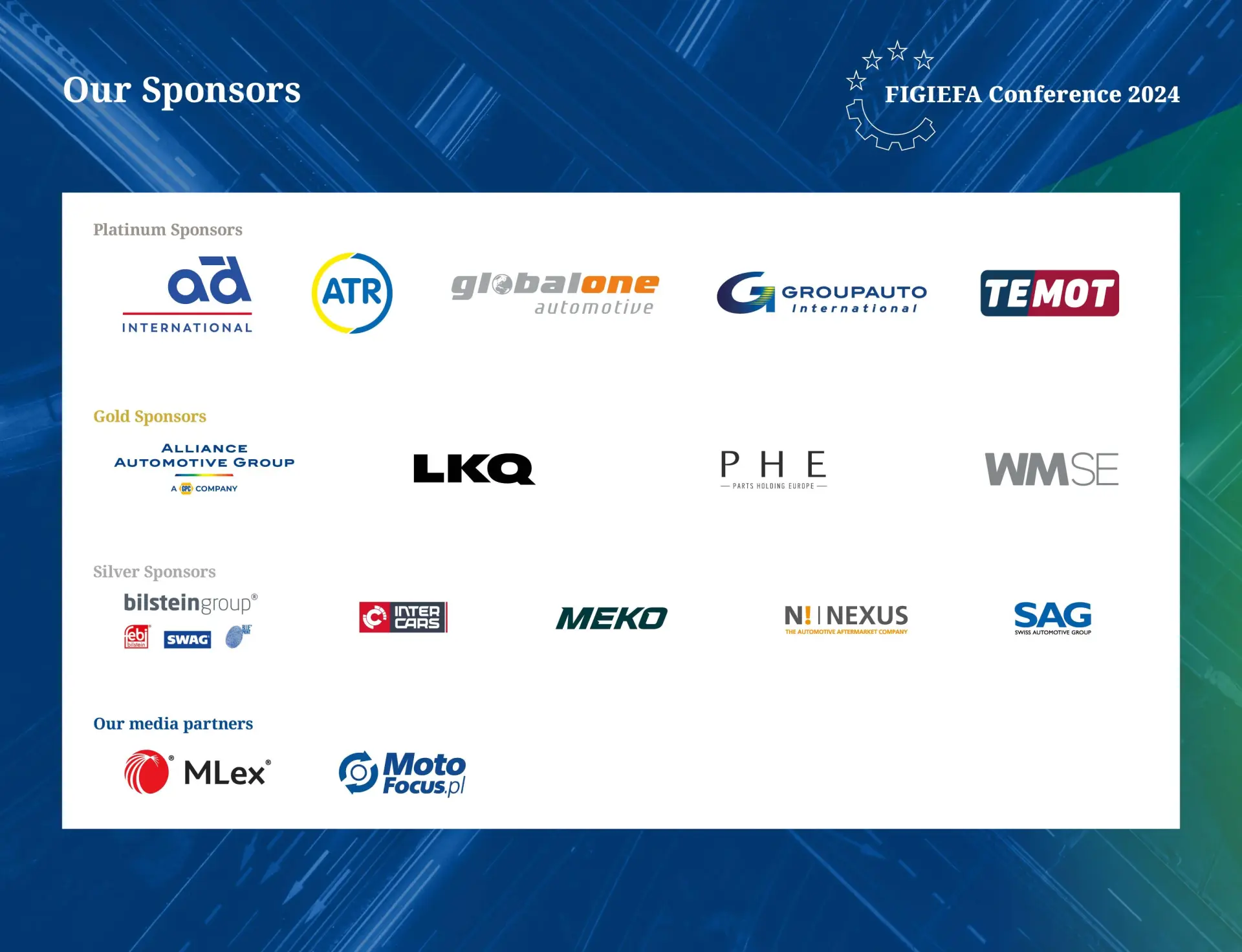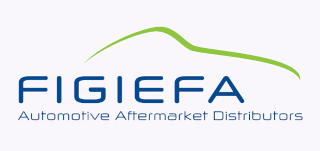FIGIEFA Conference 2024: Brussels spotlight on the ‘Hidden Champion’ of the European Automotive Industry: The Independent Aftermarket

At the dawn of the new EU legislative mandate, almost 250 people from twenty-five European countries gathered for the FIGIEFA Conference 2024. FIGIEFA is the European association for independent automotive parts distributors and wholesalers - key enablers of the Automotive Aftermarket. The companies it represents service over 400,000 independent (but also authorised) workshops which serve 80% of the market for vehicle repair and maintenance. The conference brought together the FIGIEFA membership with representatives of the parts suppliers and other automotive stakeholders along with policymakers from the European Commission and Council.
Within this framework, the consultancy Roland Berger presented in a new study the crucial contribution of the Independent Multi-brand Automotive Aftermarket (IAM) to Europe’s economy and mobility for all. It outlined how the IAM enables the competitiveness of the European industry as a whole, supports social cohesion and helps Europe achieve its sustainability targets. The IAM represents a market of EUR 73 billion in spare parts alone (around 62 percent of the total parts market) and is particularly important when it comes to the servicing and repair of vehicles that are more than four years old. This segment accounts for around 195 million vehicles, or 70 percent of those currently on European roads.
These elements become even more important under the Von der Leyen Commission’s Industrial Competitiveness Plan. DG Connect Deputy Director-General, Renate Nikolay, emphasised the Commission’s ambitions to lead Europe’s Digital Transformation, covering the regulatory efforts of the EU, determined to make this Europe's ‘Digital Decade’. She reaffirmed the need for a competitive environment where independent operators are not hindered by restrictive data access or market barriers.
This was echoed by Mark Nicklas, of the European Commission’s DG GROW, who emphasised that their work on the Mobility Transition Pathways has a focus on the ‘twin transition’ (green and digital) as driver for the competitiveness of Europe and the improvement of the Single Market.
This raises the question of how the Automotive Aftermarket can contribute to these activities and what framework conditions, including regulatory measures, are needed to allow this key part of the automotive value chain to deploy its full potential.
Thomas Aukamm raised the emerging issue of vehicle repairability. New design approaches used by vehicle manufacturers, including the gigacasting of chassis components, create significant challenges when it comes to repair. Post-crash repairs which would have been straightforward in the past, can often now lead to a total loss of the vehicle, as the repair is no longer viable. This is a challenge with electric vehicles too: LKQ’s Christoph Schön added that “the cost of battery replacements can quickly exceed the residual value of the vehicle.”
Christoph explained that the repairability issue goes beyond with some cybersecurity measures used by manufacturers hindering the use of refurbished parts. This is an example of where the digital and green objectives are not always aligned and coordinated thinking is required. The IAM can make a significant contribution to the circular economy through the re-use of existing parts to provide green and cost-effective repairs.
Louise Wohrne, Director of Sustainability at MEKO and Chair of the sector-initiative FAAS (Forum on Automobile Aftermarket Sustainability), also addressed the sustainability theme with a great panoramic perspective of how individual companies and the IAM in general can become leaders in and benefit from sustainable practices (from storing, packaging, efficient & in-proximity deliveries, to recycling and remanufacturing spare parts) and in technological innovations.
Later, eccenca’s CEO Hans- Christian Brockmann provided insights on how the IAM could use the AI technology to become more efficient. He demonstrated how ambient AI could support the day-to-day tasks of knowledge workers in the sector and asked whether this technology could be a tool to help address the staffing challenges being faced today.
Paul Kummer, Partner at Berylls outlined in their recent study how the efforts of companies and entrepreneurs within the IAM to ensure their competitiveness could be threatened by key technological trends – if these are not accompanied by robust EU legislation. Berylls identified 5 key influencing factors as particularly significant. These included the rise of captive parts, cybersecurity and remote access to vehicle generated data. They alone have the potential to shift by 2035 the current balance between vehicle manufacturers and the IAM, strongly in favour of the former. Without regulatory intervention, there is a very high $risk of serious market distortion, the bill for which would ultimately fall on European consumers. As explained by Kummer, “if the EU legislator does not intervene to ensure a level playing field, European consumers will have to pay almost €40 billion/ year more for the maintenance and repair of their vehicles.”
The impact of Cybersecurity and parts coding was one key factor which had a particularly strong impact on the evolution of the market. Nuno Carvalho, Development Director from GrupEINA Portugal, stressed how this is already an issue for workshops today and how without remote services as offered by them, they would be severely hampered in the services workshops can provide.
Robert Stevens, Director of Workshop Networks and Technology for GroupAuto International, emphasized one aspect of the factors raised by Kummer, namely access to repair and maintenance information and specifically vehicle-specific spare parts information. Difficulties in such information from OEMs, often forces distributors to ship multiple parts to workshops to ensure the correct one is available. Despite a clear ruling from the ECJ in 2024 mandating that accurate information must be provided, this remains unfulfilled.
In addition, Craig Feather, from Enterprise Mobility spoke about the value of access to vehicle-generated data and how that could significantly contribute to the management of their vehicle fleet, particularly through efficient and timely repair and maintenance. He highlighted the importance of efficient local repairs for fleet operators to keep vehicles on the road. The IAM, with its extensive network of workshops, is well-positioned to provide these services. Paul Kummer added that regulatory intervention is crucial, as manufacturers’ control over this data gives them an unfair advantage, steering business to their partner workshops and disadvantaging the IAM.
Lukasz Rosinski from DG Grow explained that the Commission is aware of the issues being raised by the IAM and is currently assessing what can be done to address them. There are some regulatory measures in the pipeline which will help, but some of the concerns require deeper intervention and will take more time to respond to.
The conference ended by a call for the EU legislators to recognise the IAM as a key part of the broader automotive industry, which plays a crucial role in the European Union’s competitiveness. The ‘vehicle lifetime industry’ must therefore be integral part of the Commission’s industrial strategy for the automotive sector. Moreover, European decision-makers must keep their work to maintain a fair level-playing field for all operators. It will strengthen our economic competitiveness, the industry innovative capabilities, and consumer choice for affordable, state-of-the-art, and green maintenance and servicing for their vehicles.

